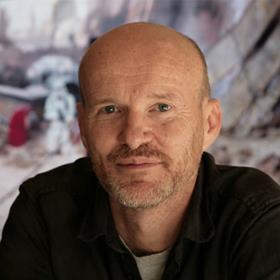Jellyfish CEO Phil Dobree on how virtualised production has eliminated global boundaries

We are in a very different world to 12 weeks ago.
We are living through the worst pandemic since 1918 and, now, witnessing the global reaction and repercussions of long standing racial inequality and division.
In the UK, there is also the imminent arrival of a probable no deal Brexit and how this may impact our industry given the high number of EU staff.
All these unprecedented external forces are now coming into focus for us and require all our planning, agility, and the tools at our disposal to meet them head on.
Jellyfish has recently announced that we will become a blended studio – one that has a studio base, but also recruits and allows artists to be located around the globe.
Once the world has gone back to normal and it is safe for people to travel and be closer, many businesses have been pondering the pros and cons of going back into the office, and this is certainly no different in our sector.
Film and TV, and in particular animation, VFX and post-production, have had to compete with attractive incentives and tax credits in other parts of the world for some time now. The UK has often met this with attractive incentives of our own. Still, it is a moving target and we now see countries like France deftly moving ahead with even higher tax credits that are cleverly constructed.
Some UK-based companies have tackled this by opening studios in those parts of the world where these tax credits exist whether it be Asia, Canada, Australia, or parts of Eastern Europe.
While that may keep these companies competitive, the net result is taking work and talent out of the UK, and often pulling people into regions where they may not want to go.
Rather than dragging artists in our sector around the world, chasing tax credits or insisting artists have to come to the UK when visas and Brexit or a global lockdown may make this harder and less attractive, Jellyfish prefers to set up where the talent resides, using technology to enable them to work seamlessly.
Since 2015, foreseeing this global and cloud way of working on the horizon, we have been working with technologies that have enabled our business to throw off the shackles of heavy infrastructure and the ’factory/studio’ way of working.
Investing in cloud and virtual technologies early on has improved our business model over the past five years. We have been able to be agile and flexible with regards to taking on projects and accessing talent, enabling us to set up studios in different locations without heavy infrastructure costs.
The next natural extension to this was to push this out to individuals working from home using similar technology. The pandemic has allowed us to test this out and has accelerated the future forward.
The two areas where there were doubts about the advantages of having individuals working from home were security and the ability to communicate and create and maintain a company culture.
We have worked very hard with the relevant industry bodies to ensure we conform to strict security protocols, as our data never leaves the Jellyfish infrastructure. People are not able to copy or take work off their computers as this doesn’t reside at their homes. They must also sign strict security and working from home agreements, which have much the same clauses as they would if working in the office.
Since the lockdown began, we have hired and successfully onboarded over 60 people. We want to ensure that they all have the same Jellyfish experience, whether they are joining from Tel Aviv, Réunion, the US or London.
We have had to up our game in terms of using group video conferencing and forums that allow the company to get together and keep our culture as strong as we can.
From our experience, we have seen no loss in productivity or quality of work, the technology allows everyone to work off the same IT infrastructure securely. What is most important for Jellyfish now, is all our crew, whether they are based in the studio or India or Sheffield to feel like they are part of a family and connected to the culture of the company.
As we slowly come out of lockdown we will focus on the human side and a blended way of working that ensures what makes us Jellyfish is similar around the globe.
A way of work that combines the benefits of the studio and what that has to offer and the flexibility and access to talent around the world without forcing them to move. We believe this is the way forward and our technology and culture will continue to develop to allow this to happen as effectively and efficiently as we can.

Phil Dobree is CEO of VFX and animation house Jellyfish





























No comments yet